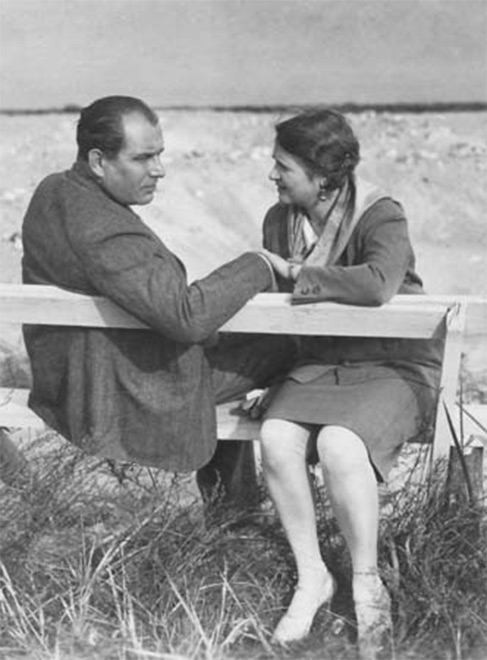Berlin Stories Leber family
Torgauer Straße 24-25, 10829 Berlin

Julius Leber, a social democrat and Member of Parliament, was released from concentration camp in 1937, where he had been tortured for years. Friends found him work as a coal dealer in the Bruno Mayer Nachfolger coal business in Berlin-Schöneberg.

In 1944, Julius Leber was at the heart of the conspiracy against the Nazi regime. The coal dealer shop became a meeting point for the resistance; leading members of the Kreisau Circle and the military came here. After the war, Theodor Heuss, who later became the first Federal President, referred to it as a “conspirators’ hut”. The Gestapo arrested Leber at the coal dealer’s shortly before the 20 July assassination attempt. He was executed in Berlin-Plötzensee on 5 January 1945.

Annedore Leber became the family breadwinner when her husband was arrested. She fought with tremendous energy for her husband’s freedom. When Julius Leber was rearrested, she too was taken to prison for a short time. Her children were forced to live with a new family. After her release, Annedore Leber was allowed to visit her husband several times in prison before his execution.
After 1945, Annedore Leber was passionately committed to keeping the resistance ideas alive. As an SPD politician, co-editor of the Telegraf newspaper close to the SPD and editor of her own magazine Mosaik, as an author, journalist and publisher, her chosen target groups were women and youth. She also rebuilt the coal dealer shop, which had been destroyed during the war and now included her publishing firm. Annedore Leber died in 1968 and was buried in the Waldfriedhof in Berlin-Zehlendorf.
There are plans to make the former coal dealer shop a place of learning and remembrance.




